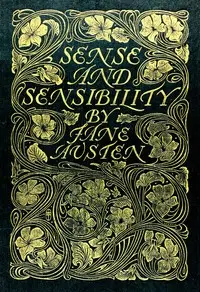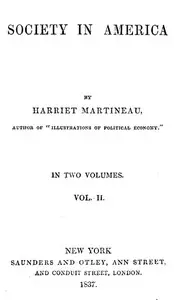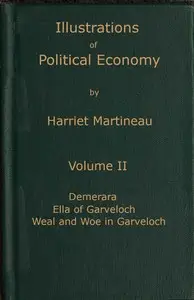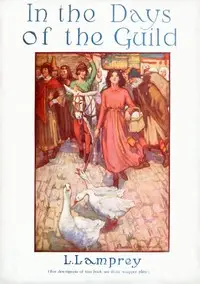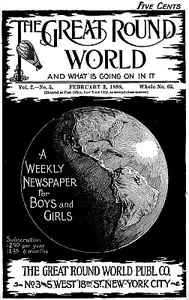"Five Years of Youth; or, Sense and Sentiment" by Harriet Martineau is the story of two young sisters, Mary and Anna Byerley, growing up in the early 1800s without their mother. Living in a farmhouse near a small town, they depend on their father and the kindness of their community. The book shows how much family love matters, how people change as they grow, and how society's rules affect women's lives. The story starts by painting a picture of the sisters' life – their fun times together and their memories of their mother who has passed away. Martineau uses strong images of their surroundings and relationships to introduce the girls and show how their good qualities are shaped by what happens to them every day. Their home life, filled with both emotional struggles and happy moments, forms the basis for how they develop into young women.
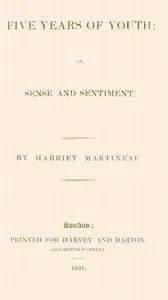
Five years of youth : $b or, sense and sentiment
By Harriet Martineau
In a world of love and loss, two sisters learn to navigate life's challenges, discovering the strength within themselves as they blossom into womanhood.
Summary
About the AuthorHarriet Martineau was an English social theorist. She wrote from a sociological, holistic, religious and feminine angle, translated works by Auguste Comte, and, rarely for a woman writer at the time, earned enough to support herself. The young Princess Victoria enjoyed her work and invited her to her 1838 coronation. Martineau advised "a focus on all [society's] aspects, including key political, religious, and social institutions". She applied thorough analysis to women's status under men. The novelist Margaret Oliphant called her "a born lecturer and politician... less distinctively affected by her sex than perhaps any other, male or female, of her generation."
Harriet Martineau was an English social theorist. She wrote from a sociological, holistic, religious and feminine angle, translated works by Auguste Comte, and, rarely for a woman writer at the time, earned enough to support herself. The young Princess Victoria enjoyed her work and invited her to her 1838 coronation. Martineau advised "a focus on all [society's] aspects, including key political, religious, and social institutions". She applied thorough analysis to women's status under men. The novelist Margaret Oliphant called her "a born lecturer and politician... less distinctively affected by her sex than perhaps any other, male or female, of her generation."




